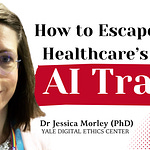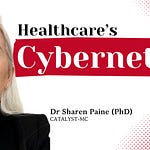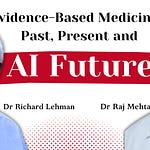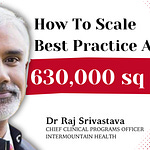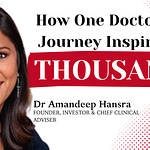"The way to prevent cascades is to keep your eye on the goal, to understand what you're trying to accomplish and not to go down rabbit holes chasing abnormalities, but rather to be focused on the outcome that you're looking for."
— Dr James Mold
Listen now on Apple, Spotify, YouTube or wherever you get your podcasts.
Dr James W. Mold is a family medicine physician, geriatrician, researcher and academic with a Master of Public Health degree and is Professor Emeritus at the University of Oklahoma Health Sciences Centre. His pioneering research focuses on transforming healthcare from a problem-oriented to a goal-oriented paradigm, addressing the limitations of traditional problem-focused approaches. For over 20 years, in collaboration with the Oklahoma Physicians Resource/Research Network (OKPRN), Dr Mold has completed more than 75 major projects, resulting in more than 100 publications.
Key Takeaways
Clinical cascades are preventable through goal focus: Unnecessary medical interventions often cascade from initial anxiety-driven decisions. Maintaining focus on patient outcomes rather than chasing every abnormality prevents harmful escalation.
The problem-oriented paradigm has reached its limits: While effective for acute, single problems, traditional disease-focused medicine struggles with the reality that all patients have multiple risk factors and complex needs.
Four universal healthcare goals exist naturally: Every patient wants to survive as long as possible, maintain quality of life, have a good death, and continue personal growth—goals that require individual understanding rather than standardised approaches.
Practice-based research networks bridge the research-practice gap: Successful implementation requires trusting practitioners, addressing their real-world questions, and providing ongoing facilitation support rather than just education.
Goal-oriented care is more satisfying and effective: This approach makes medicine more enjoyable for providers while resonating strongly with patients, though system constraints make adoption challenging.
Where to Find Dr James Mold
In This Episode
01:07 - Early experiences in family medicine and the humanising revolution
05:40 - Transition from family practice to academic geriatrics
10:31 - The cascade effect: when one decision spirals into unnecessary care
15:32 - Building practice-based research networks and learning from practitioners
22:00 - Implementation research and the "aeroplane repair in mid-flight" challenge
26:45 - The problem-oriented paradigm: how we got here and why it's failing
33:57 - Goal-oriented healthcare: the four universal goals every patient has
40:47 - Implementation challenges and global adoption of goal-oriented care
Referenced
Goal-Oriented Healthcare (Link)
The Cascade Effect in the Clinical Care of Patients (Paper)
Goal-Oriented Prevention: How to Fit a Square Peg into a Round Hole (Paper)
The Law of Diminishing Returns in Clinical Medicine: How Much Risk Reduction is Enough? (Paper)
Thomas Kuhn's "The Structure of Scientific Revolutions" (Book)
Failure of the Problem-Oriented Medical Paradigm and a Person-Centred Alternative (Paper)
Oklahoma Physicians Resource Research Network (Link)
Practice-based research network methodology (Link)
Contact
Contact Information: If you have any feedback, questions or if you'd like to get in touch, reach out at jono@clinicalchangemakers.com
Music Attribution: Music by AudioCoffee from Pixabay
👍 Hey there - if you're enjoying this episode, make sure you share it with a friend! Thank you for your support.




